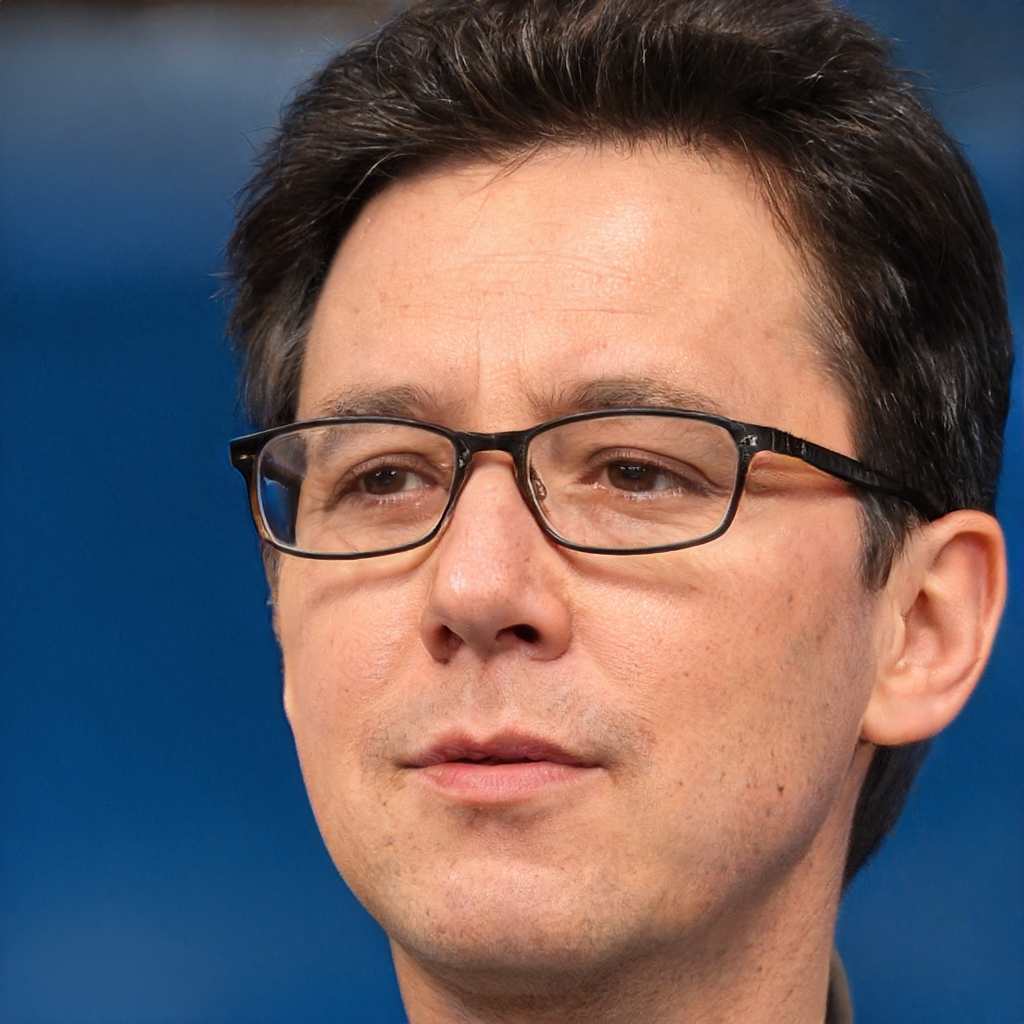In a business organisation, there are so many peoples are work together. It involves leaders, managers, sr. managers, executives, sr. executives and etc. Different peoples have different power and they know very well that what the right use to their power and authority is. Power is related with the ability which an individual holds in order to influence others (Rivoli, 2014). It makes a person independent, sometimes power is positive or may be negative. It is based upon the person who has rights of that authority. It impact organisation towards follows the rules to the employees and better understanding of their responsibilities.
It may be helpful in achieving organisations goals and improves employee’s performance. Organisation management is able to effectively use of power techniques towards empowerment. There are several types of power that assistive in encourage cooperation and coordination among team members. But sometimes power is changed into conflicts and disputes among leaders and their team members. It also gives strength and motivation to the employees for accomplishing their individual or organisational targets and objectives. Power and politics are often related with integral elements in the expansion of the organization and all are needed for an organization in order to successfully manage its operations and activities.
Task 1
Explain Power and Politics Briefly in The Organisation Management
Power and politics plays an important role in the business organisation. It is helpful in order to manages organisational activities and actions. It learn to manager that how to take legal and governing decisions and how to interact them to employees. In Mark and spencer, managers have to coordinate with their workers so that they can easily learn the uses of power and authorities. Politics directly influence the person whom has power and it determines whether the whole culture of the business encourages efficiency (Pinder, 2013). Organisations which are based on political structure are function by distributing authorities and set a phase for the exercise of power.
You Share Your Assignment Ideas
We write it for you!
Most Affordable Assignment Service
Any Subject, Any Format, Any Deadline
Order Now View Samples
It can be helpful in order to motivating the employees and encourage their performance. Many organisations are providing a power base for their employees towards creates a surplus of profit so that their cost meets their market needs. It also supplies for team members in order to develop careers and provide them platforms for the expansion of their motives and interest. The advancement of careers specifies at high managerial and professional levels that depends on accretion of power. If the managers have power so that they can use it better in order to make effective decisions and implement them for a long term period. The political pyramid of Mark and Spencer, exists when employees compete for power in an economy inadequacy.
Power and politics are the internal component of the organisation, that impact on employee’s relations and organisational productivity. Both are tied together and they are essential towards the successful organisational targets as well as its objectives. It plays an extenuating role in the growth and development of the business enterprise. If another one regulatory authority is works upon employees so that they gives their better performance and increases their capabilities (Blowers, 2013). It also encourages the learning skills and knowledge of employees and members so that they can think innovative and creative.
Power and politics is also helpful in order to manage the behaviour of the team members, it means not to use of abnormal words and abuse language, so that healthy working environment can be created in Mark & Spencer. It influences peoples in order to accomplish company’s goals as well as personal goals. Organizations also wants that individuals working together and struggling for status position and resources. Organizations have limited resources and budgets therefore it is unavoidable that some employees will not getting everything that they need.
Power of the organization has legitimate influences that are within the guidelines of the organization and politics of the company is effects it by outside performance and relations with externals. Power is the ability to get someone to do something that an organisation want, it Is done or the ability to make things happen in the way that it want them to, and politics are defined as the management of inspiration to find ends not sanctioned by the organization (Jones, 2012.). May be they both are separate ideologies, but they needed within administrative development to function properly. Power is an effect that is used to regulate activities within the organization; it acts like what a leader.
Training and socialization members of the team are capable to better adopt the power that is related with the organization. Management of Mark and Spencer is uses several types of power that inspires cooperation for the employees supervised. There are various restrictions that are set by power in order to influence overall organization.
Impact of Power and Politics in Organisational Productivity
Positive Type of Power
Positive power in business includes increasing productivity. It involves providing employees the power to make decisions, gratifying them for strong performance and appointing them who execute to work harder. It also gives outcomes in those in higher-level positions and gaining power through employee communication and respect, rather than powerful efforts. Sometimes it is not mandatory that there is permanently a poor relationship between the power holder and dependent target, the process of mutual influence can also be there (Brun and Van Hear, 2012). Power and politics is also related with ethical behaviour in the organization.
It is related with an organization’s declaration that all the decisions, interactions and actions with stakeholders. It matches with the professional and ethical standards and morals of the company. Ethical behaviour also has power and politics into deliberation and it is confirmed that power cannot be used as personnel profit or negatively. There is a critical relation between power, politics and ethical behaviour of the company; they all are interrelated with each other in order to achieve organisational goals and its productivity. All of these are able to manage the overall behaviour and activities of the business enterprise that affects its performance in capital market and it is also helpful in generate the cost of product.
Negative Types of Power
When leaders of the organisation, do not respect their employees who are working under them that means they are using their power negatively. This kind of managers inspires employees to perform by aggressive them with job loss fear and other penalties or shows favouritism to few employees rather than identifying the hard work of multiple employees. With that not only the quality of the work is affect but also the organisation’s turnover arte also decreases. Negative power is arise when mangers behave unethically and he tries to be coercive with his employees during work (Peterson, 2012). Along with this by holding this authority, a power holder applies influence with the by the use of threat or other kind of punishment.
Leader also usage bad language and abuses words with their employees and trying to harass them mentally so that they are in pressured cannot perform well. On the other hand, sometimes managers are forced to do act like this in order to establish their supremacy among employees so that they can wellbeing and well behaved with other colleagues. Negative power also affects the decision making process of the company because due to the fear of leader, they cannot express their views and ideas. By that organisation cannot get innovative and new ideas, and in this technical world only those organisations can be succeed which have fresh and unique techniques.
Such kinds of managers are not stay for long term period in business and their future in unsecured. Due to this organisation performance and its profit is goes down day by day so that directors must have to find that kind of leaders who affects the environment of the organisation and take a strict action from them by this employees can work freely and fearlessly (Goodfellow and Smith, 2013).
Positive Workplace Politics
Employees those who wants learn to navigate in the politics of an organization are more creative than those who are leftward out of the circle. Organizations must have developed a easy political culture so that they can understand it and it is for only those employees who want to encourage their productivity (Grix and Lee, 2013). Launching strong strategies and chains of command creates it easier for employees in order to identify the answers that they need and devote more time on manufacturing quality work. A climate concentrated on teamwork and equal treatment avoids conflict that can decrease productivity.
Negative Workplace Politics
Negative workplace politics applies when organizations that develop the environment of conflict and disputes are suffers from negative outcomes. If employees are stimulated to involve in dishonest or unethical behaviour in order to get fast and preferential trumps the quality of work. Such kinds of an organization face decreases in efficiency or outcome as well as higher turnover rates (Manners, 2013).
The management of Mark and Spencer have to focuses on negative politics that affects organisational performance. Any business enterprise without vibrant policies and chains of command cannot leads to employees, so that it have spending more time in searching for answers and attempting to reduce problems by this they can easily get quality work.
Task 2
Explain The Impact of Conflicts and Negotiations on Organisational Culture
Conflict is a process that begins when one party perceives another party has negatively affected something that about first party cares. It is natural & inevitable outcome in any group or organisation. In mark & Spencer, conflicts are necessary to employees so that they can perform effectively. In many commercial enterprises conflict is viewed as a negatively because mangers that it impact on organisational environment and its culture. It is used as synonymously by violence and destruct irrationality to all employees and managers.
Conflict is harmful so that is can be avoided and negotiated by managers in order to maintain the overall environment of the business organisation. According to( Slaikeu and Hasson, 2012) conflict is a dysfunctional result that is comes from lack of openness, poor & bad communication, lack of trust between employees and the failure of leaders is responsible to the wants and expectations of their employees. Conflict and negotiations are also reduction outcomes in high or large group’s performance and their productivity.
It cannot be eliminated from business, there are times when conflicts plays significant role in increases employees performance in order to compete with each other. There are two types of conflicts: - functional & dysfunctional conflicts. Functional conflicts support groups and improve performance whereas dysfunctional conflict hinders groups towards their performance. The main causes of conflict are: - potential incompatibility and opposition, cognition & personalization, intentions behaviour and outcomes. All these factors affects organisation culture well as well also develops jealously between employees.
You Share Your Assignment Ideas
We write it for you!
Most Affordable Assignment Service
Any Subject, Any Format, Any Deadline
Order Now View Samples
It is happened in large organisation where there is lack of communication and interaction. Employees and mangers cannot understand each other feelings and messages and it develops misunderstanding between them. These little misunderstanding develops into big or large battles and sometimes it changes into strikes and wars. In business organisation, between employee – manager conversation the interaction is not wrong as they both take it.
Negotiation is a process that occurs when two or more parties decide that how to allocate the resources. The main cause among this process is to generate profit so that if any one organisation is not ready with another strategy it creates negotiation among both parties. There are two main approaches in negotiation process, such as: - distributive bargaining and integrative bargaining. Distributive bargaining focuses on get as much as possible means it concentrates only on profit. Whereas integrative bargaining is relates with extend the pie so that both sides can be satisfied that means it focuses on win-win situation rather than first focus on win-lose situation (Keashly and et. al., 2011).
Conflict and negotiation both are the two sides of a coin, when party not agrees with another strategy & policies; it occurs conflicts and battles among both parties. If this is happened in Mark & Spencer, kind of large organisation this will develops battles and wars among both parties. The process of negotiation involves such steps, they are: - both parties hae to make sure about their goals that stays principal of their performance. After that both sided parties have to put their goals in writing and develop a choice of outcomes so that both can easily focus on them. Along with this, both sides have to assess that what they are thinking is as same as the other party’s goals and objectives. After that once both are sure about that, so then they have to apply their strategies this will help to reduce the chances of disputes and battles.
There are some individual differences that affect negation, such as: -personality traits, gender and mood & emotions. All those three factors impact on negotiation process of the company. Negotiators who are agree on they can do very successful bargaining as they are friendly and outgoing suddenly they move on to share more information that they could. Emotions and moods have an important part in negotiation process. Negative emotions create intensity and illogical behaviour it also causes of conflicts to escalate. Although positive emotions are helpful in reaching an agreement and also assistive in maximizing joint profits and gains.
In gender differences, men can easily negotiate better than women’s, but this difference is relatively small. Conflicts and negotiation both have their positive and negative impact, it depends on managers that how they are using that (Robbins and Judge, 2012). If manager’s really wants to increases employees performance and their productivity for that he\she must have to develop the environment of the organisation in order to identify all those factors that are affecting its environment and work culture. These factors are may be internal or external, for that managers have to analyse them by SWOT or PESTAL analysis.
SWOT analysis is helpful in find out internal issues and problems whether PESTAL analysis is helpful in external factors such as competitors, suppliers, public and customers. With that, the chance of conflicts and disputes are reduces and Mark & Spencer will be able to develop a healthy working environment.
There are so many types of conflicts that impact on organisation’s performance positively or may be negatively. These types are based on organisation size and its and they gives relevant solutions that how origination deal with all those factors.
The Types of Organisation Conflicts are
Based on Relationships
Conflicts are based upon family members or friends are come under this category. They are often caused by disagreements, miscommunication on negative emotions. They are also called Interpersonal conflict; it refers to a battle between two persons. This occurs naturally due to how individuals are dissimilar from each other. In this world, have many various personalities which generally results to mismatched opinions and choices (Tjosvold, Wong and Feng Chen, 2014).
Actually, it is a normal occurrence that can ultimately help in personal evolution or growth organisational relationships of employees. In adding, adjustments are necessary in order to managing this kind of conflict. Along with this, when interpersonal conflict gets too critical, calling in athird person whowould help so that it can be easily resolved.
Based on Interest and Values
Conflicts that are based upon interest and value are described as a divergence or type of rivalry among team members. Such types of conflicts are happened when where the requirements of individual are unnoticed over the requirements of another. Conflicts are in values often seen among individuals elevated in dissimilar cultural and spiritual backgrounds, who have different opinions and view over a specific thing (Caputo, 2013). It involves when the first one don’t give vales and attention of another values, like to ignoring them. It is also called Intrapersonal conflict and it occurs when the experience takes place of ego in the individual’s mind.
Based on Ethics
This conflict can be defined as exterior factors that influence a decision, somewhat often seen in the Mark & Spencer organisation. Ethical conflicts take places when a misunderstanding rises between two or more teams in a business organisation. For example the sales department of the company can come in dispute with the department which is supporting the customers. This can be happened due to the various set of objectives and goals as well as the interested of this department (Gelfand and et. al., 2012). There are so many factors that develop these kinds of factors, some of these may comprise a competition in resources or the limitations set by a group for others in order to establish their own individuality as a squad.
Based on Personality
Clashing of personalities may also develop conflicts at organisational environment. . Emotions and perceptions play a significant role in whether or not someone’s may like or dislike another one’s personality. It causes due to when an employee does not like the behaviour or the attitude of his boos, but he is likely to be part of his team (Trudel and Reio, 2011). That also leads conflicts and battles among employee and manager. It also happens when members don’t like the method of completing task and assignments of their colleagues.
Conclusion
In the above mentioned report it has been concluded about the role of power and politics. Both are the important factors of an organisation in order to increases its productivity and success. Without power managers are able to forces their workers to perform towards accomplishing organisational goals. Power and politics is also helpful in manages organisation culture and its environment, it focuses on well behaviour of employees and also expect same from manages so that a healthy and fresh environment can be crested in an business enterprise.
On the other hand sometimes it happed that managers and leaders are using their power negatively by behaving unethically. Unethical behaviour of the managers encouraged fear and anxiety among employees and they are not work properly. Along with this, the misuse of power and politics is development into conflicts or disputes in organisational environment. Then, managers are able to working together and they also can’t force their employees to do same. Conflicts and disputes are plays an important role in mismanagement of the organisation and they also decreases its productivity as well. For that managers and directors have to create effective plan in order to reduce all that.
References
- Rivoli, P., 2014.The Travels of a T-Shirt in the Global Economy: An Economist Examines the Markets, Power, and Politics of World Trade. New Preface and Epilogue with Updates on Economic Issues and Main Characters. John Wiley & Sons.
- Pinder, D., 2013.Visions of the city: utopianism, power and politics in twentieth century urbanism. Routledge.
- Blowers, A., 2013.The limits of power: the politics of local planning policy(Vol. 21). Elsevier.
- Jones, P.S., 2012. Powering up the people? The politics of indigenous rights implementation: International Labour Organisation Convention 169 and hydroelectric power in Nepal.The International Journal of Human Rights. 16(4). pp.624-647.
- Brun, C. and Van Hear, N., 2012. Between the local and the diasporic: the shifting centre of gravity in war-torn Sri Lanka's transnational politics.Contemporary South Asia. 20(1). pp.61-75.
- Peterson, J.H., 2012. A conceptual unpacking of hybridity: Accounting for notions of power, politics and progress in analyses of aid-driven interfaces.Journal of Peacebuilding & Development. 7(2). pp.9-22.
- Goodfellow, T. and Smith, A., 2013. From urban catastrophe to ‘model’city? Politics, security and development in post-conflict Kigali.Urban studies. 50(15). pp.3185-3202.
- Grix, J. and Lee, D., 2013. Soft power, sports mega-events and emerging states: The lure of the politics of attraction.Global Society. 27(4). pp.521-536.
- Manners, I., 2013. Assessing the decennial, reassessing the global: Understanding European Union normative power in global politics.Cooperation and Conflict. 48(2). pp.304-329.
Amazing Discount
UPTO55% OFF
Subscribe now for More
Exciting Offers + Freebies










